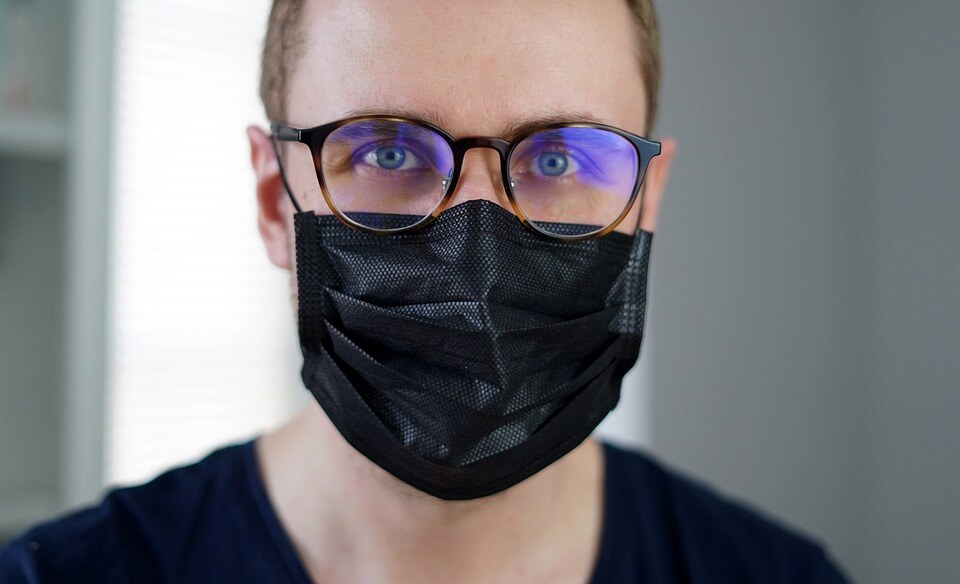Education
Flu Symptoms 101: Is It Flu or Something Else?
Published
2 years agoon
By
admin
Flu Symptoms
There are 25 to 50 million cases of flu each year in the United States alone, but not all winter illness is flu. Influenza is a specific type of respiratory infection caused by the flu virus. Influenza is spread through contact with an infected person or, rarely, with an infected animal . It can be especially serious in high-risk populations such as the elderly, young children, and people with chronic medical conditions. Flu can sometimes look similar to other illnesses, such as the common cold and coronavirus. But if you know which symptoms are associated with each infection, they are easier to recognize. This is your one-stop guide to flu symptoms.
What are the symptoms of flu?
The flu virus has different symptoms. Some of the earliest indicators include:
- Runny or stuffy nose
- Tickling in the throat
- Mild body aches
- Unusual fatigue
- Sneezing
In most cases, they are not mild for a very long time. Flu symptoms can get worse quickly and include:
- Fever
- Chills
- Sore throat
- Muscle aches
- Headaches
- Cough
- Tiredness
The symptoms of flu in children are often similar to those in adults. However, children are more likely to develop a high fever (103 ° F to 105 ° F) or gastrointestinal problems such as nausea, vomiting, and diarrhea.
As the disease manifests itself differently from person to person, flu can have symptoms without respiratory symptoms, but this is quite rare.
Flu symptoms and the confusing words of flu
There are many types and strains of flu, and it can be difficult to tell them apart by symptoms alone. The flu virus has many categories and sub-types. There are four broad categories of influenza virus : influenza A, B, C, and D.
Influenza A and B are the most common causes of the seasonal flu, which we usually worry about every year, and the symptoms are generally so similar that it would be almost impossible to tell them apart without back-up laboratory tests.
While influenza C can infect humans as well, symptoms are generally very mild compared to influenza A and B infections.
Remember that the term flu is confusing and is often used incorrectly. For example, stomach flu is technically called viral gastroenteritis and is not a respiratory disease at all, nor is it related to flu, but is caused by completely different viruses such as noroviruses or rotaviruses.
| Flu vs. confusing flu terms | ||
| Common name | Flu | Stomach flu |
| Virus | Influenza A or B. | Noroviruses, rotaviruses |
| Common symptoms | · Fever · Chills · Pains · Sore throat · Headaches · Tiredness | · Abdominal pain · Nausea · Vomiting · Diarrhea · Chills · Tiredness · Loss of appetite · Fever |
Flu symptoms and colds
Colds and the flu share several symptoms, so they are often confused. While both can cause a runny nose, sore throat, and cough, colds rarely cause fever, body aches, or exhaustion.
| Flu and colds | |
| Flu | The usual cold |
| · Fever · Chills · Pains · Sore throat · Headaches · Tiredness | · Stuffed nose · Sneezing · Sore throat · Cough · Congestion · Low fever |
Related Health Education Links:
Flu symptoms and COVID-19
While the COVID-19 pandemic has swept the United States – and the rest of the world – millions of people wonder if they’ve caught the coronavirus or the seasonal flu. They both have similar symptoms and methods of transmission, but the coronavirus is more contagious and takes longer to develop symptoms . The key difference is that COVID-19 is more likely to cause breathlessness and loss of taste or smell.

COVID-19
| Flu versus COVID-19 | |
| Flu | Coronavirus |
| · Fever · Chills · Pains · Sore throat · Headaches · Tiredness | · Fever · Cough · Dyspnoea · Muscle aches · Tiredness · Loss of taste or smell · runny nose |
How long do flu symptoms appear? How long last?
Let’s take a look at the timeline. Symptoms may first appear one to four days after exposure to the virus (usually two). They usually last five to seven days. Some symptoms, such as fatigue, may last up to two weeks. Typically, a person with the flu is contagious for about a week, starting one day before symptoms appear. However, getting vaccinated against the flu can help reduce the duration of the flu and, ultimately, it’s contagiousness.
This timeline may be longer for high-risk groups such as the elderly, young children, pregnant women, and people with chronic medical conditions or a weakened immune system. These groups are also more likely to experience complications which may include:
- Pneumonia
- Ear infection
- Sinus infections
- Dehydration
Less frequent, more severe complications of influenza include inflammation of the heart, brain, or muscles, and potential organ failure.
The common cold has a similar incubation period, only slightly faster. Symptoms may appear 10 to 12 hours after infection, peaking within one to three days and lasting three to 10 days.
On the other hand, the coronavirus is progressing more slowly. According to the Centers for Disease Control and Prevention , symptoms can appear two to 14 days after exposure and last up to two weeks. To prevent its spread, the CDC recommends isolation for 10 days from the onset of symptoms and up to 24 hours without fever without the use of fever-lowering medications, as long as all symptoms improve .
RELATED: What We Know About Consequences and Persistent Symptoms of COVID-19
How to treat flu symptoms
Once you are infected with the flu virus, it cannot be completely eradicated. Most of the time it will just work. However, there are treatments available to help manage and relieve symptoms. For example:
- Antiviral drugs: Since the flu is a viral infection, prescription antivirals such as Tamiflu (oseltamivir phosphate) and Relenza (zanamivir) may shorten the duration and severity of symptoms.
- Over-the-counter pain relievers: Ibuprofen , acetaminophen , and naproxen can relieve muscle aches and reduce fever.
- OTC Flu and Cough Medications: Cough and Cold Remedies DayQuil can relieve cough, runny nose, sore throat, and other flu symptoms.
- Liquids: Helps to moisturize and breaks down mucus for easy removal. Water, real fruit juices, tea, and sports drinks are good options, but avoid alcohol or excessive caffeine.
- Rest: Allows the body to focus on the immune system and helps avoid exacerbation of fatigue and body aches. Staying home from work or social events also prevents the spread of the virus.
- Moisturizers and steam: May relieve stuffy nose and cough.
- Cold compresses and warm baths: This will help you control your body temperature or at least keep your body feeling

Flu
I usually recommend rest aFlu
When to see a doctor for flu
In most cases, the flu will cause some discomfort for a few days but will eventually go away on its own in about a week. But not always. For some, the flu can cause serious, life-threatening complications, such as in the elderly. CDC Estimates 70% to 85% of flu-related deaths occur in people aged 65 and over. Anyone with at least one of the following risk factors for influenza complications should see a doctor to help prevent severe illness or infection:
- Age over 65
- Younger than 5 years old, especially under 2 years old
- pregnancy
- Obesity
- Chronic health conditions (asthma, cystic fibrosis, COPD, heart disease, kidney disease, etc.)
- Impaired immune system (due to HIV / AIDS or certain immunosuppressive therapies)
Otherwise, most people can weather the storm until their symptoms subside. Some symptoms point to a more dire situation and require medical attention. According to Dr. Peters, anyone experiencing the following sudden symptoms should see a specialist:
- Dyspnoea
- Abdominal or chest pain or tightness
- Persistent dizziness, confusion or sleepiness
- Severe muscle pain
- Serious weakness
- Fever or cough that gets better then come back
- Worsening of chronic medical conditions
- Confiscation
- Failure to urinate
People experiencing these symptoms, especially if they are part of a high-risk population, should see a doctor as soon as possible.
In conclusion, the symptoms of flu are preventable
We are not doomed to sit and wait for the flu season to come. The flu vaccine is an effective way to defend against flu. Contrary to popular myth , the flu vaccine will not give someone the flu . Instead, it will catalyze the body’s production of antibodies to fight the flu and reduce the severity of the infection.
Flu vaccination will not prevent COVID-19 infections . But by protecting against the flu, it will stop the virus that can weaken the immune system and make someone more susceptible to other infectious diseases, including the coronavirus. After all, it’s best to play it safe and get vaccinated against the flu.

Trending

 France FR3 years ago
France FR3 years agoGame of Thrones Saison 8 episode 5 streaming VOSTFR

 Education2 years ago
Education2 years agoDoes CBD work as a sleep aid? and its Disorders

 Finance4 years ago
Finance4 years agoWeTransfer Alternatives (based on Outlook and OneDrive) for big file transfers

 Credit Card4 years ago
Credit Card4 years agoKELISTO: How Can I Get Free Credit Card?

 Education2 years ago
Education2 years agoCan Cannabis Cause You to Grind Your Teeth? [Explained]

 Featured4 years ago
Featured4 years agoPERSONAL INCOME TAX. VARIATIONS IN PERSONAL INCOME TAX

 Business2 years ago
Business2 years agoUse of Technology in Education for Learning and Teaching

 Finance4 years ago
Finance4 years ago3 Best Financial Tips